Episode 1635: St. Deusdedit
St. Deusdedit I
Pope from 615 to 618
Born: Rome, Italy
Died: November 8, 618, Rome, Italy
Feast Day: November 8
Patronage: Against leprosy
Background and Early Life
St. Deusdedit, born in Rome, Italy, was a priest who became Pope in 615. He was the first priest to be elected pope since John II in 533. The first use of lead seals or bullae on papal documents is attributed to him.
Certainly, here's an elaboration on the significance of St. Deusdedit's introduction of lead seals or bullae on papal documents:
The implementation of lead seals or bullae on papal documents marks a crucial development in the history of papal communication and authentication. Prior to Deusdedit's pontificate, papal documents were typically sealed with wax seals, which were susceptible to forgery and alteration. Lead seals, on the other hand, offered a more secure and tamper-proof method of authentication.
The introduction of lead seals by Deusdedit served several important purposes:
Enhanced Authenticity: Lead seals provided a more reliable means of verifying the authenticity of papal documents. Their distinctive appearance and durability made it challenging to counterfeit them.
Preventing Forgery: The use of lead seals acted as a deterrent against forgery, as tampering with the seal would leave visible marks, rendering the document invalid.
Signifying Papal Authority: The presence of the lead seal signified the authority of the Pope and the authenticity of his decrees. It served as a tangible symbol of papal power and legitimacy.
Preserving Document Integrity: The lead seal helped to preserve the integrity of papal documents by preventing unauthorized alterations or additions. Its presence ensured that the document remained unchanged from its original form.
Facilitating Communication: Lead seals played a vital role in facilitating communication between the Pope and various parties within the Church and beyond. They ensured that papal directives and communications were received with confidence and respect.
The introduction of lead seals by St. Deusdedit marked a significant step forward in the authentication and security of papal documents. It contributed to the preservation of historical records and enhanced the credibility of papal pronouncements. The use of lead seals continued for centuries, serving as a testament to the foresight and innovation of St. Deusdedit.
Pontificate
Deusdedit's pontificate was a time of great turmoil in Italy. The Byzantine Empire was fighting a war against the Lombards, who were threatening to conquer the entire peninsula. Deusdedit tried to mediate between the two sides, but he was unsuccessful.
Deusdedit is also known for his support of the secular clergy. He reversed the policy of his predecessors, who had favored monks. Deusdedit believed that the secular clergy were more effective in ministering to the people.
During the early medieval period, the role of the clergy in the Church evolved significantly. The Church experienced a growth in monasticism, leading to a rise in the influence of monks. Some popes, such as Gregory the Great and Boniface IV, had favored monks over the secular clergy, who were primarily responsible for pastoral care and the administration of parishes in local communities.
St. Deusdedit, however, reversed this trend by advocating for the secular clergy. He believed that the secular clergy were better equipped to minister to the needs of the people on a daily basis. Their direct interaction with the laity allowed them to understand their concerns and provide spiritual guidance and pastoral care.
Deusdedit's support for the secular clergy was based on several factors:
Direct Connection to the People: Secular clergy were embedded in their communities, living and working alongside the laity. This proximity allowed them to develop a deeper understanding of the people's needs and concerns, enabling them to offer personalized spiritual guidance and support.
Effective Pastoral Care: Secular clergy were dedicated to the daily ministry of their parishes, providing regular Mass celebrations, sacraments, and spiritual counseling to the faithful. Their hands-on experience in pastoral care made them more effective in ministering to the needs of the people.
Responsiveness to Local Issues: Secular clergy were attuned to the specific challenges and concerns of their local communities, enabling them to address issues of immediate importance and provide tailored pastoral support.
Integration into Local Society: Secular clergy were integrated into the social fabric of their communities, participating in local events and initiatives, fostering a connection with the people that went beyond mere religious duties.
Deusdedit's emphasis on the secular clergy reflected his vision of an accessible and responsive Church that was actively engaged in the lives of its members. His support for the secular clergy contributed to the Church's ability to maintain its connection with the people and fulfill its role as a spiritual guide and source of support for the faithful.
Death and Legacy
Deusdedit died in Rome on November 8, 618. He is venerated as a saint in the Roman Catholic Church. His feast day is November 8.
Deusdedit is remembered as a kind and compassionate pope who worked tirelessly to help the poor and suffering. He is also remembered for his efforts to promote peace and unity in Italy.
-
 9:58
9:58
CatholicReboot
5 months agoEpisode 1885: St. Eucherius
121 -
 13:02
13:02
CatholicReboot
6 months ago $0.01 earnedEpisode 1791: St Volusian
87 -
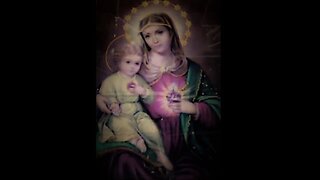 1:01:55
1:01:55
Sancta Sedes Apostolica - The Holy Apostolic See
6 months agoVIDEO - The curse of the sedevacantist HERESY...12 January, 2024 AD
17 -
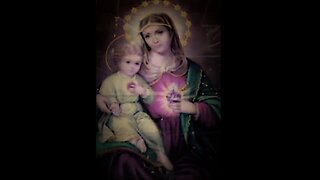 51:42
51:42
Sancta Sedes Apostolica - The Holy Apostolic See
7 months agoVIDEO - And then you shall seek and not find, and you shall die in your sins...21 December 2023 AD
30 -
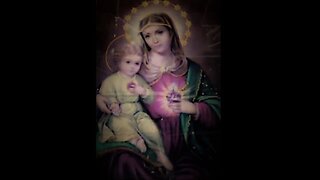 1:06:31
1:06:31
Sancta Sedes Apostolica - The Holy Apostolic See
3 months agoVIDEO - The sedevacantist HERESY does NOT lead to the truth of salvation...5 April, 2024 AD
16 -
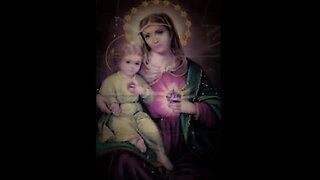 1:20:12
1:20:12
Sancta Sedes Apostolica - The Holy Apostolic See
6 months agoThe sedevacantist heresy in its sacrilegious abominable perverted aspects...24 January, 2024 AD
29 -
 1:11:55
1:11:55
Sancta Sedes Apostolica - The Holy Apostolic See
7 months agoVIDEO - Official Papal Audience - Answering common questions...13 December 2023 AD
43 -
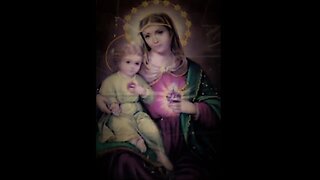 1:07:16
1:07:16
Sancta Sedes Apostolica - The Holy Apostolic See
4 months agoVIDEO - Summary of the invalid heretical ceremonies of the excommunicated heretics...7 March, 2024 AD
18 -
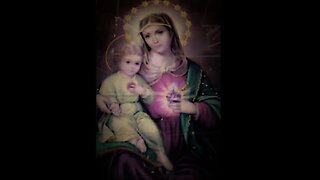 1:10:49
1:10:49
Sancta Sedes Apostolica - The Holy Apostolic See
6 months agoVIDEO - The (crying for vengeance) heretical lies of the SSPX heretics...
142 -
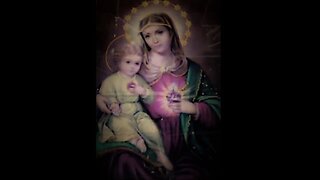 36:33
36:33
Sancta Sedes Apostolica - The Holy Apostolic See
4 months agoVIDEO - How to truly resist the devil and avoid heretical fabrications of his servants...27 February, 2024 AD
20